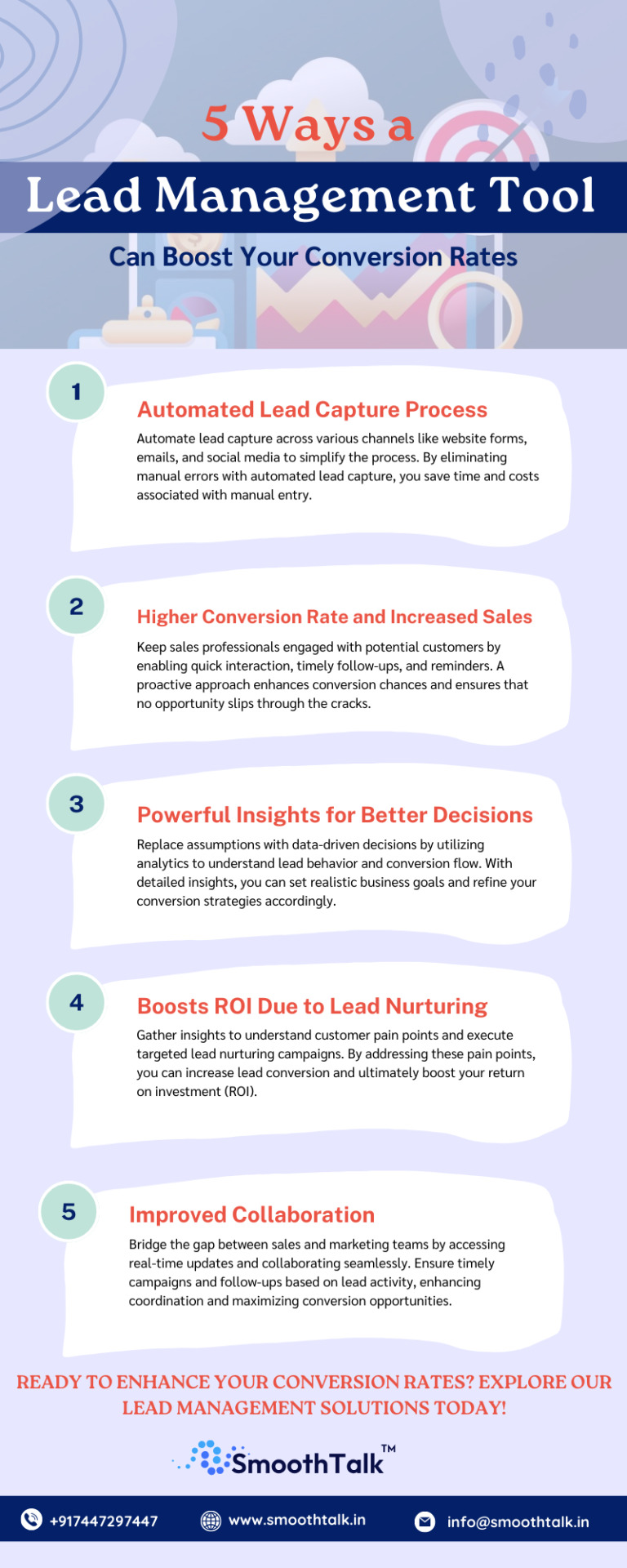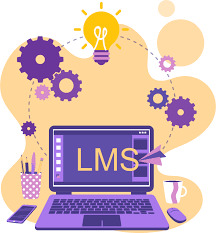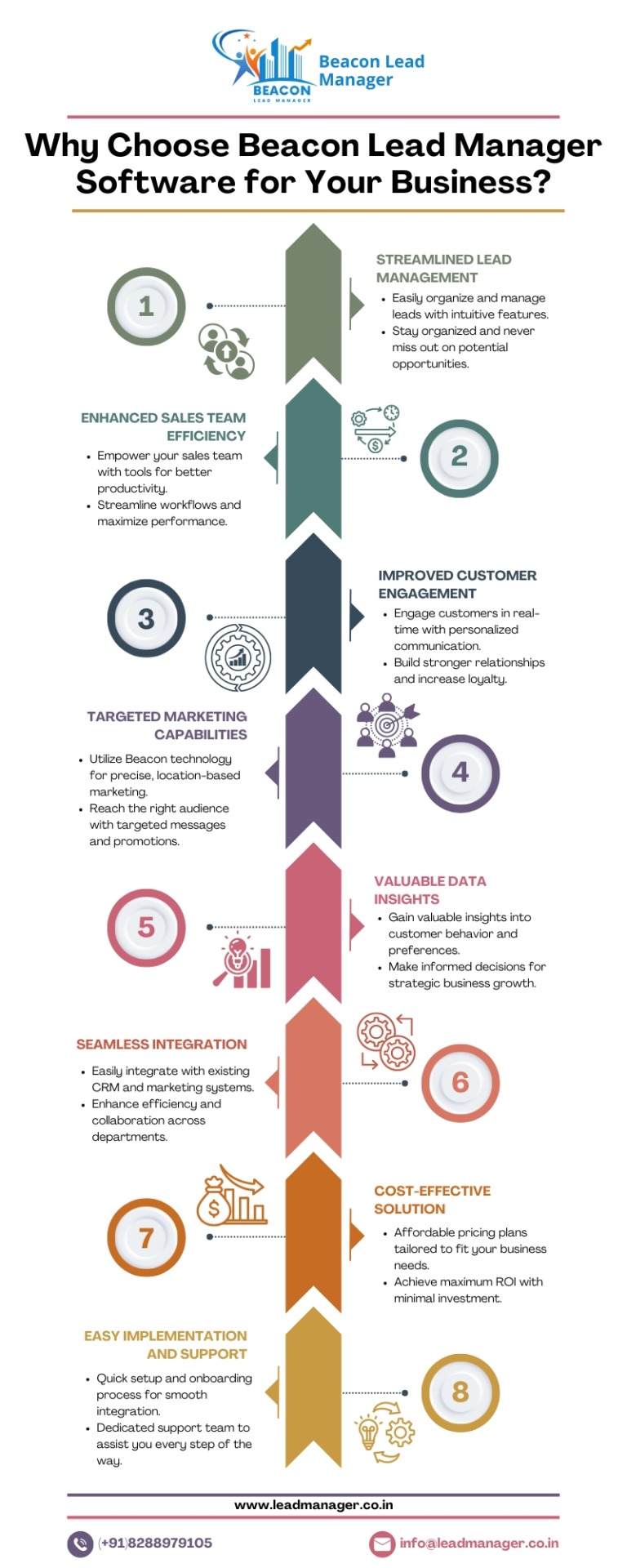#Lead management
Text
0 notes
Text
What is Lead Management

Lead management is a crucial aspect of any business that aims to convert potential customers into loyal clients. It involves tracking and managing prospective customers, also known as leads, throughout their buying journey. This process ensures that businesses can effectively nurture and convert these leads into sales, maximizing their revenue and growth potential.
Key Components of Lead Management
Lead Generation
Lead generation is the first step in the lead management process. It involves attracting potential customers through various marketing strategies such as content marketing, social media campaigns, and paid advertisements. The goal is to capture the interest of individuals who might be interested in your products or services.
Lead Capture
Once potential customers show interest, the next step is lead capture. This involves collecting information from these prospects, typically through forms on landing pages, subscription sign-ups, or other means of engagement. Effective lead capture strategies ensure that you have the necessary details to follow up with your leads.
Lead Tracking
Lead tracking involves monitoring the activities and behaviors of your leads. This includes tracking their interactions with your website, emails, and other touchpoints. By understanding their behavior, you can better tailor your communication and marketing efforts to meet their needs and preferences.
Lead Qualification
Criteria for Qualifying Leads
Not all leads are created equal. Lead qualification helps identify which leads are most likely to convert into customers. This process involves evaluating leads based on certain criteria such as their level of interest, budget, and fit with your target market. Qualified leads are those that meet your ideal customer profile and are ready for further engagement.
Lead Scoring Systems
Lead scoring is a method used to rank leads based on their potential value to your business. By assigning scores to leads based on their interactions and demographic information, you can prioritize which leads to focus on. Higher-scoring leads indicate a higher likelihood of conversion.
Lead Distribution
Methods of Distributing Leads
Lead distribution involves assigning leads to the appropriate sales representatives or teams. This can be done manually or through automated systems. Effective lead distribution ensures that leads are promptly followed up with and receive the attention they need to move through the sales funnel.
Automation in Lead Distribution
Automation tools can significantly streamline the lead distribution process. These tools use predefined criteria to automatically assign leads to the right personnel, ensuring a quick and efficient response. Automation helps prevent leads from falling through the cracks and improves overall sales efficiency.
Lead Nurturing
Strategies for Lead Nurturing
Lead nurturing is about building relationships with your leads and guiding them through the buying process. This can be achieved through targeted email campaigns, personalized content, and regular follow-ups. The aim is to provide value and keep your brand top-of-mind until the lead is ready to make a purchase.
Importance of Personalization
Personalization is key to effective lead nurturing. By tailoring your messages and offers to the specific needs and interests of your leads, you can significantly increase engagement and conversion rates. Personalized communication makes leads feel valued and understood, fostering trust and loyalty.
Lead Conversion
Steps to Convert Leads into Customers
Converting leads into customers involves several steps. First, you need to ensure that your leads are well-nurtured and ready to buy. This includes providing them with all the information they need to make an informed decision. Next, you need to make the purchasing process as smooth and seamless as possible. Finally, follow up with new customers to ensure satisfaction and encourage repeat business.
Metrics to Track Lead Conversion
Tracking the right metrics is essential for understanding and improving your lead conversion process. Key metrics include conversion rate, average time to convert, and cost per conversion. These metrics help you identify areas for improvement and optimize your strategies for better results.
Lead Management Tools
CRM Systems
Customer Relationship Management (CRM) systems are essential tools for lead management. They help you organize and track all your interactions with leads, ensuring that nothing falls through the cracks. Popular CRM systems include Salesforce, HubSpot, and Zoho CRM.
Marketing Automation Software
Marketing automation software can significantly enhance your lead management efforts. These tools automate repetitive tasks such as email marketing, lead scoring, and follow-ups, allowing your team to focus on more strategic activities. Examples of marketing automation software include Marketo, Pardot, and Mailchimp.
Integrating Lead Management with Sales
Aligning Marketing and Sales Teams
For lead management to be effective, it's crucial to align your marketing and sales teams. This means ensuring that both teams have a shared understanding of lead quality, goals, and processes. Regular communication and collaboration between marketing and sales can help streamline lead management and improve overall results.
Benefits of Integration
Integrating lead management with your sales process offers several benefits. It ensures that leads are seamlessly passed from marketing to sales, reducing the chances of losing potential customers. It also helps in maintaining consistent communication and providing a better customer experience.
Challenges in Lead Management
Common Obstacles
Lead management is not without its challenges. Common obstacles include ineffective lead generation strategies, poor lead quality, lack of alignment between marketing and sales, and inadequate tools and resources. These challenges can hinder your ability to effectively manage and convert leads.
Solutions to Overcome Challenges
To overcome these challenges, it's essential to continuously evaluate and optimize your lead management strategies. This includes improving your lead generation efforts, refining your lead qualification criteria, enhancing collaboration between marketing and sales, and investing in the right tools and technologies.
Best Practices in Lead Management
Tips for Effective Lead Management
To excel in lead management, consider the following best practices:
Develop a clear lead management strategy.
Invest in high-quality lead generation methods.
Use data-driven approaches for lead scoring and qualification.
Implement automation tools to streamline processes.
Foster strong alignment between marketing and sales teams.
Case Studies of Successful Lead Management
Examining case studies of companies with successful lead management practices can provide valuable insights. For example, a company that implemented a robust CRM system and personalized lead nurturing campaigns saw a 30% increase in lead conversion rates. Another company that used automation tools for lead distribution reduced their response time by 50%, leading to higher customer satisfaction and sales.
Future Trends in Lead Management
AI and Machine Learning
Artificial intelligence (AI) and machine learning are set to revolutionize lead management. These technologies can analyze vast amounts of data to predict lead behavior, optimize lead scoring, and personalize communication. AI-driven tools can help businesses make more informed decisions and improve lead conversion rates.
Predictive Analytics
Predictive analytics involves using historical data and statistical algorithms to forecast future outcomes. In lead management, predictive analytics can help identify which leads are most likely to convert, allowing businesses to focus their efforts on high-potential prospects. This can lead to more efficient and effective lead management.
Conclusion
Lead management is a critical component of any successful business strategy. By effectively generating, capturing, tracking, and nurturing leads, businesses can significantly improve their conversion rates and grow their customer base. Investing in the right tools and strategies, aligning marketing and sales efforts, and staying ahead of trends are essential for mastering lead management.
0 notes
Text
What are the role of lead management?

Lead management plays a crucial role in driving business growth and efficiency. The lead management process involves capturing, tracking, and nurturing potential customers through various stages of the sales funnel until they make a purchase. Utilizing a robust lead management system or lead management software can significantly streamline this process.
Key Roles:
Lead Capture: Effectively collect leads from various sources, including social media, websites, and advertising efforts.
Lead tracking: Track each lead's journey and get insights into how they interact and engage with your company.
Lead scoring enables sales teams to focus on high-potential prospects by ranking leads according to their ability to convert.
Lead nurturing: To build relationships and advance leads through the sales funnel, keep up regular, individualized communication.
Data analytics: Enable data-driven decision-making by offering insightful information about lead behavior and the success of marketing tactics.
A well-implemented lead management system or software not only improves conversion rates but also enhances overall sales efficiency and customer relationships, contributing to sustainable business growth.
0 notes
Text
What is Lead management System and how does it works
Lead management software is a comprehensive tool utilized by businesses to streamline the process of acquiring, organizing, and nourishing potential customers or leads throughout their journey to conversion. This software centralizes lead capture from various sources like website forms, social media, and email campaigns, ensuring no opportunity slips through the cracks. It employs lead tracking and scoring mechanisms to prioritize leads based on their engagement level and likelihood to convert, allowing sales teams to focus their efforts effectively. Additionally, lead segmentation enables personalized communication tailored to specific demographics, behaviors, or interests.
0 notes
Text
Lead Management Software
In today's competitive business landscape, having a solid lead management strategy in place is crucial for success. By leveraging lead management software, you can streamline your lead tracking process, enhance lead qualification, and boost productivity and revenue. Whether you're a small business owner or a large enterprise company, implementing a lead management software solution can help you achieve your business goals.
Request for Demo - https://www.vert-age.com/try-free-demo
Content Writer & SEO - Jai
All right reserved - Vert Age
0 notes
Text

🚀 Boost Your Conversion Rates with Lead Management Tools!
Are you struggling to convert leads into sales? Discover how a lead management tool can revolutionize your conversion rates:
🎯 Automated Lead Capture: Simplify lead capture across all channels, saving time and reducing errors.
💼 Higher Conversion Rate: Keep your sales team engaged with timely follow-ups and a proactive approach.
📊 Powerful Insights: Make data-driven decisions with detailed analytics on lead behavior.
💰 Boost ROI: Nurture leads effectively and increase your return on investment.
🤝 Improved Collaboration: Bridge the gap between sales and marketing teams for seamless coordination.
Get in Touch: https://smoothtalk.in
Ready to take your business to the next level? Explore our lead management solutions today! #LeadManagement #ConversionRates #SalesOptimization #BusinessGrowth #LinkedInMarketing 📈
0 notes
Text
Unveiling CRM: Definition, Benefits, and Key Features

Introduction: Understanding CRM
Customer Relationship Management, abbreviated as CRM, has become the cornerstone of modern business operations. It encompasses a set of strategies, technologies, and practices aimed at managing and analysing customer interactions throughout the customer lifecycle, with the goal of improving relationships, retaining customers, and driving sales growth.
What is CRM?
At its core, CRM is a business strategy that focuses on building and nurturing relationships with customers. It involves gathering and analysing customer data to better understand their needs, preferences, and behaviours. By leveraging CRM software, businesses can streamline various processes related to sales, marketing, and customer service, resulting in enhanced efficiency and profitability.
The Benefits of CRM
Enhanced Lead Management
One of the primary benefits of CRM is its ability to streamline lead management processes. By centralising lead data and automating lead nurturing workflows, CRM software empowers businesses to effectively track and manage leads throughout the sales pipeline. This ensures that sales teams can prioritise leads, follow up promptly, and ultimately close more deals.
Improved Customer Service
CRM software enables businesses to deliver superior customer service by providing representatives with access to comprehensive customer profiles and interaction histories. This allows them to respond to inquiries more efficiently, anticipate customer needs, and personalise interactions, thereby fostering stronger customer relationships and loyalty.
Seamless Task Management
Effective task management is crucial for business success, and CRM software plays a pivotal role in this regard. With built-in task management features, CRM platforms enable teams to create, assign, and track tasks related to customer interactions, sales activities, and marketing campaigns. This ensures that nothing falls through the cracks and helps teams stay organised and focused on achieving their objectives.
Key Features of CRM Software
Contact Management
CRM software offers robust contact management capabilities, allowing businesses to store and organise contact information, communication histories, and other relevant details in a centralised database. This ensures that all customer data is easily accessible and up-to-date, enabling teams to deliver personalised experiences and targeted communications.
Sales Automation
CRM platforms streamline sales processes through automation, enabling sales teams to automate repetitive tasks such as data entry, email outreach, and follow-up reminders. By automating these tasks, sales representatives can focus their time and energy on engaging with prospects and closing deals, ultimately driving revenue growth.
Analytics and Reporting
Analytics and reporting are integral components of CRM software, providing businesses with valuable insights into their sales performance, customer behaviour, and overall business health. By analysing data such as sales trends, conversion rates, and customer demographics, businesses can make informed decisions, identify areas for improvement, and optimise their strategies for success.
Conclusion: Harnessing the Power of CRM
In conclusion, CRM is much more than just a software solution – it's a strategic approach to managing customer relationships and driving business growth. By leveraging CRM software, businesses can enhance lead management, improve customer service, and streamline task management processes. With its array of features and benefits, CRM has become an indispensable tool for modern businesses looking to stay competitive in today's rapidly evolving marketplace. Embrace CRM, and unlock the full potential of your customer relationships.
By incorporating CRM into your business strategy, you can cultivate lasting relationships with customers, increase sales revenue, and position your business for long-term success. So, what are you waiting for? Take the first step towards mastering CRM today!
0 notes
Text
0 notes
Text
CRM software improves data quality
Yes, Customer Relationship Management (CRM) software can significantly improve data quality in several ways:
Centralization of Data: CRM software allows businesses to centralize customer data, ensuring that all customer interactions, sales information, and other relevant data are stored in one place. This reduces the risk of duplicate or conflicting data.
Data Consistency: With a centralized system, CRM software enforces data consistency by providing standardized forms and fields. This consistency helps maintain data accuracy and reliability.
Automated Data Entry and Validation: Many CRM systems offer automated data entry features, such as integration with other business applications, to reduce manual entry errors. They also often include validation rules to ensure that the data entered meets certain criteria, further enhancing data quality.
Regular Data Cleansing and Deduplication: CRM software often includes tools for deduplicating records and cleaning up outdated or incorrect data, ensuring that information remains accurate and useful over time.
Audit Trails and Tracking: CRM systems typically provide audit trails and tracking features, allowing businesses to monitor changes to data and identify who made those changes. This transparency helps ensure accountability and supports data quality management.
Improved Collaboration and Communication: By centralizing customer data, CRM software facilitates better collaboration among team members. This improved communication helps ensure that everyone has access to the same accurate information, reducing misunderstandings and errors.
Advanced Analytics and Reporting: CRM software often includes advanced analytics and reporting capabilities, allowing businesses to identify data quality issues and take corrective action. These tools can help highlight inconsistencies or anomalies in the data, enabling proactive data management.
Overall, CRM software can play a crucial role in enhancing data quality, leading to more efficient business processes, better customer experiences, and improved decision-making.
Check the website to know more: https://www.sunsmartglobal.com/customer-relationship-management-software-dubai-qatar-uae-usa-london/
#crm#customer relationship management software#crm management software#best customer relationship management software#lead management#Customer Service Management#CRM Implementation#CRM Best Practices
0 notes
Text
How To Use Lead Management System Efficiently
A Lead Management system acts as a centralized hub for all your lead data, streamlining the process of capturing, qualifying, and nurturing leads. Imagine having all your lead information – contact details, interactions, and interests – organized in one place, readily accessible to your sales and marketing teams.
Here's how leveraging your LMS efficiently can transform your lead generation efforts:
Centralized Data & Streamlined Processes: An LMS eliminates data bin and ensures all lead information is readily available.This fosters smoother handoffs between marketing and sales teams, allowing them to collaborate effectively and work towards a common goal.
Lead Scoring & Prioritization: Not all leads are created equal.An LMS helps you score leads based on their demographics,interests, and interactions with your brand.This prioritizes your outreach efforts, allowing you to focus on the most qualified leads who are more likely to convert.

Automated Workflows & Lead Nurturing: Take the manual out of lead nurturing. An LMS allows you to set up automated workflows that trigger personalized emails, social media messages, or follow-up tasks based on specific lead behavior.
Detailed Analytics & Reporting: An LMS provides valuable insights into your lead generation efforts. Track key metrics like lead source, conversion rates, and campaign performance. This data allows you to identify what's working and what's not and authorizes you to continuously optimize your lead management strategies.
Ready to unlock the true potential of your lead generation efforts?
Here are some additional tips for using your LMS efficiently:
Regularly Clean and Update Lead Data: Ensure your data is accurate and up-to-date to maintain effective communication with leads.
Invest in Team Training: Proper training authorizes your team to fully utilize the features of your LMS, maximizing its benefits.
Integrate with Existing Tools: Connect your LMS with your CRM, marketing automation software, and other relevant tools for a seamless workflow.
By implementing these strategies and leveraging the power of your Lead Management System, you can transform your lead generation process with fintech evolution from a scattered mess into a good function, ultimately driving sales and achieving business growth.
0 notes
Text
Request a Demo for Sales Tracker - Sales Management App
Discover the power of Sales Tracker, our cutting-edge Sales Management App. Request a Demo today to experience seamless sales tracking, insightful analytics, and streamlined customer management. Revolutionize your sales process with our user-friendly interface and customizable features. Boost productivity, optimize performance, and drive growth with Sales Tracker. Don't miss out, schedule your demo now!
0 notes
Text
Lead Management Software – A Complete Guide of What Features Should You Look Into?
Explore A Complete Guide of Lead Management Software Features to Optimize sales, Capture, track, and nurture leads efficiently for business growth.
0 notes
Text
Never Lose a Lead with Offline Hand-Off
Offline hand-off is a LeadAngel platform feature enabling sales reps to schedule meetings with unavailable prospects swiftly. With a click, the SDR initiates the process, filling a form with prospect details. Smart lead-to-account routing assigns leads to suitable AEs based on criteria like availability. Prospects select meeting times via an integrated calendar app during the call. This ensures a smooth customer experience and customizable lead management, safeguarding against system manipulation. Offline hand-off streamlines follow-up, aiding successful deal closures. To learn more about this feature, click here.
0 notes
Text

Why Choose Beacon Lead manager for your Business.
Find out why Beacon Lead Manager is the BEST LEAD MANAGEMENT SOFTWARE for your business. With easy-to-use features and seamless integration, it helps streamline your sales process. Whether you're a small business or a big one, Beacon makes managing leads simple, boosts productivity, and helps your business grow. Choose Beacon Lead Manager today!
0 notes